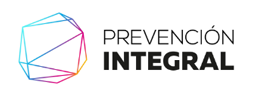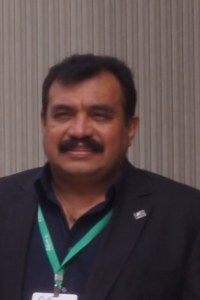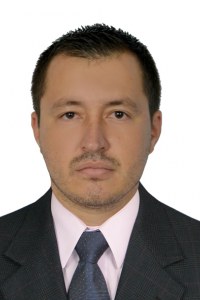



Introduction
Ethics occupies a large part of human thought and behavior, either in a way that is foreign to it or in an internal way. Foreign because since Classical Antiquity to the present day many have addressed ethical issues and internal because ethical behavior goes beyond external regulatory statements and lies in the reflection that each one does, regarding its objectives, motives, desires and behaviors . It can be stated that ethics, as well as universal, is also personal and not transferable. Inseparable from the concept of ethics is, upstream, the concept of moral and, downstream, the concept of professional ethics or deontology. Considering ethics as a set of principles and morality as normative statements, the professional ethics emerges as a set of rules, specific to a particular occupation. If ethics refers to individuals in their essential humanness, deontology determines the extent of this individual ethically appropriate professional conduct. However, it is through ethical codes that deontology is operated, since they are frames of reference, accepted by a given professional and/or scientific community, integrating the technical principles under the aegis of ethical principles. Codes of ethics appear to be important tools for qualification and dignity of the profession. Singer, a specialist in applied ethics, said, in the 90s, what ethics is not, a definition that is essential to our understanding of it: " Ethics is not a noble ideal system in theory but useless in practice. The reverse is closer to the truth: an ethical judgment that is necessarily bad in practice suffers from a theoretical defect, because the purpose of an ethical judgment is to guide practice “ [9].
The dimension of professional ethics is a relatively emerging phenomenon, born from the observed improvements in quality of life and professional development and has gained a prominent position as risk management strategy, in that , by means of codes, provides aid to maintain equity and fairness and promotes social and professional cohesion. Westerholm argues that rapid changes and innovations in the world of work impose serious challenges to society, businesses and workers and establish new contexts for the activities of the occupational safety technician. The same author also argues that professional ethics should represent a benefit, as far as promoting integrity and human values is concerned [11].
The ethical codes have a dual function for occupational safety technicians: firstly they represent a structuring element in the profession since they involve in multiple dimensions of the professional activity, implying a continuous reflection on an ethical framework, and, secondly, contribute greatly to the knowledge of employers regarding the ethical responsibilities of professionals. Public agencies and professional organizations have showed an increasing preoccupation regarding the promulgation of professional ethical codes, specially health services organizations and health related research [11], although codes of professional conduct for occupational safety technicians have also started to emerge on several countries where the safety culture has developed alongside the demands of society, labor and the profession itself. Even if professionals are well informed and trained for the peculiarities the codes of conduct can still advise or orient decisional processes that demand more profound reflection on ethical decisions. Such codes cannot contain, nor is it expected that they do so, detailed rules of conduct, but must constitute their selves as an ethical framework of normative nature. With regard to occupational safety, ethical codes should represent equally an attempt to convey, in terms of professional conduct, the values and principles of the profession, in fact, they should crystallize the cornerstones of practice and encourage the practitioners to according to them, aiming at the best professional conduct as possible.
The mentioned cornerstones can vary, but not much: professional values are universal, common to the vast majority of professions and, therefore, to professional codes of ethics. The Golden Rule, as it is commonly referred to, appears as the basic principle of professional guidelines. Respect for human life, embracing the protection of life, or the principle of human dignity is perhaps the principle that stands out. Directly from the Universal Declaration of Human Rights for many other professions, it is also the essential principle that should guide, without exception, the conduct of occupational safety practitioners. This principle highlights that every person should be treated with dignity, regardless of age, gender, race, religion or any other characteristic and, as stated on article 3 “Everyone has the right to life, liberty and security of person” [10], regardless of some many other professions, occupational safety should clearly embrace these principles. Other basic ethical principles are also pillars for the development of an ethical code: principles as competence, autonomy, responsibility, integrity, beneficence, non-maleficence, justice and equity, just to highlight the ones that are more commonly accepted as the foundation of ethical frameworks. Although these principles and their development under the form of guidelines for professional activity can enforce the expected ethical practice, they are not, sometimes, enough to assure the practitioners behave, professionally, according to the universal principles of professional conduct. In all the requirements that must comply with a code of ethics, the question arises in relation to patterns of behavior that a code should contain: should be minimum standards or optimal standards of professional conduct? The minimum standards of behavior relate to the establishment of a minimum level of practice that is accepted, while the optimal patterns refer to the processes of education, training and practice development, towards improving the quality of the services provided. Another relevant issue in the development of an ethical code is related to prescriptive and proscriptive dimensions: a prescriptive code suggests the purpose to achieve must be acknowledged, while a proscriptive code allows one to take any form of action, understood as appropriate, except those that are, immediately, banished by the code itself. There is also another dimension to consider, the punitive dimension, as some codes have specific content with procedures for punishing and scolding, giving these type of codes a criminal-legal dimension, while other models are more oriented to the promotion of quality of the professional activity. In this respect, it is considered that the Code of Ethics should foreclose in itself an ethical purpose, as Savater argues, the code should replace the obligation, for an invitation to ethics [8]. Regardless of the model used, it is absolutely essential that the standards reflected in codes of conduct are adjusted to the relevant legislation and, when possible, hold any legal weight, particularly in what concerns the binding of professionals to its fulfillment.
Even though the legal dimension can be a challenge, as regards the implementation of a code, we come to acknowledge that ethical issues can be far harder to identify than the legal issues. In what concerns the legal aspects of practice, professionals find in the law and in education and training more information and more basis under which they can orient their practice. But, ethical issues involve multiple scenarios, messy situations and cover a lot more issues than the legality does [10]. Under these circumstances a code of ethics can become an instrument that allows practitioners to be more sensitive to ethical issues, providing values and principles for reflection and decisional processes.
With regard to ethical dilemmas, it is essential to understand that these are intrinsic to the vast majority of professional activities, especially those that are guided by interpersonal and professional decisions, which have the ability and power to affect people relations, such as Occupational Safety. An ethical dilemma is a situation whose resolution seems extremely difficult and requires professional reflection, consideration and an enormous capacity for management of possible consequences, so it could even be considered as a damage management situation, since it is the eminence of their occurrence that commonly generates the dilemma. Strahlendorf states professionals are faced with dilemmas when having two ethical explanations that lead to a conflict in ethical decision and, therefore, arise three common ways of solving the dilemma: creating a third alternative that allows one to satisfy the two ethical explanations, behave sequentially in order to satisfy them both, or, evaluate which is the strongest ethical explanation and act according to it [10]. Perhaps following these steps can allow the technicians to provide ethical solutions to difficult cases; however the high risk situations seem easier to solve, since the weight of the decisions is heavier when facing possible outcomes, but when the situations involve low risks, do the practitioners engage in such deep evaluating of potential outcomes? Do they assure the ethical principles apply to their decisions and that they can ethically justify their behavior?
In occupational safety the dilemmas tend to be related to the balance between risk to life and health against equality in human rights [10] and in this sense, we strongly believe ethical codes, as benchmarks of ethical conduct, can prove to be of fundamental importance, since the dilemmas cover an enormous range of circumstances and can emerge from so many different aspects of the work of the technicians, but they have in common the need for a set of ethical principles to serve as references for their resolution.
In the literature review, regarding the framework of Occupational Safety ethics in Portugal, there were found only two reference documents regarding the establishment of ethical principles for work: the Law N. º 42/2012, of 28 August the regulates the occupational safety technician profession and the Code of Ethics of the Occupational Safety and Hygiene Technicians of the National Association of Occupational Safety and Hygiene Technicians (ANTESHT) [2]. In order to collect data on the ethical norms of the profession in other countries, we proceeded to the analysis of reference documents from recognized countries in the international community of Occupational Safety, such as United Kingdom, Australia and the United States of America. There is, in these countries, a recognized investment in the development of reference documents of professional ethics in the sense of promoting high standards of professional conduct, guided by basic principles, including respect, competence, responsibility and integrity. In the UK the Health and Safety Executive has developed a Code of Practice and Guidance, produced in 1992: the Workplace (Health, Safety and Welfare) Regulations [4]. This document gives practical advice to practitioners, but also has legal standards that must be fulfilled and it covers a wide range of issues within the health and safety activities. Even though it does not represent itself as a code of ethics, in its broadest sense, this code of practice contains the necessary guidelines that professionals need to perform their activities based on ethical principles and allows a deeper evaluation, in case of dilemmas, according to values and principles defined by their professional and scientific community. In Australia we find two important references: The Occupational Health and Safety Code of Practice 2008 and the Victorian Code of Ethics and Minimum Service Standards for Professional Members of Occupational Health and Safety (OHS) Associations. Both documents represent instruments for practitioners to frame their needs in terms of guidance on professional practice, especially the second one regarding ethical issues. The first document mentioned was issued by the Minister of Employment and Workplace Relations, giving legal weight to the standards defined in the code that are addressed to technical aspects of practice, on the other hand, the second document, addressed only to practitioners who are members of professional association goes deeper into the ethical principles and highlights the major values mentioned earlier in this document, namely, responsibility, integrity, competence, amongst others [5]. The combination of both documents represents a legal frame to which the practitioners are bound to act professionally. Regarding the reference documents in the area of occupational safety in the USA, there are several documents, produced and disseminated by the various professionals’ associations, like the American Board of Industrial Hygiene Code Ethics [1] and the Technician and Technologist Code of Ethics, which is addressed to the Occupational and Safety Technologists, Certified Loss Control Specialists and Construction Health and Safety Technicians [3]. Once again we verify that all these documents tend to emphasize the core values relevant to professional practice, some in a more extensive and detailed version, others in a more concise and summary form.
Another document that has stood out in our revision of reference documents concerning ethical guidelines for practitioners of occupational safety is the International Code of Ethics for Occupational Health Professionals of the International Commission on Occupational Health [6]. Although this code is mainly addressed to professionals operating in the occupational health area it is embedded with the basic principles that concern to the professional activities that aim at the protection and promotion of workers’ health and safety and, therefore, also contain important guidelines that apply to the occupational safety technicians. Another important remark, regarding this document is that it was produced in 1992, but was revised and update in 2002. This revision took under consideration the changing environment where occupational health is practiced [6], highlighting a significant aspect of the ethical codes, which is the need for updating in order to reflect the reality of the practice and the shifts in demands and constraints as consequence of constant changes in society and work.
In our opinion, the absence of a code of ethics or a guideline for professional practice drives to question whether this absence has indeed impact on the ethical conduct of occupational safety technicians. Does the lack of a code of ethics have consequences in terms of the ethical decision processes? In these circumstances, it is considered urgent to collect information on major difficulties and handicaps of the technicians, including their ethical dilemmas in the professional activity and also disclose the level of knowledge that the Portuguese technicians have regarding the structuring and guiding ethical values and principles of their profession.
The existence of a code of ethics for practitioners of Occupational Safety, imbued with ethical principles applicable to the technical principles will promote the use of rational, universal and impersonal principles, addressed to the profession, ensuring that their conduct is consistent with those principles and dignifying the profession to its highest level.
Methodology
In order to gather information about the knowledge of professional ethics, ethical dilemmas occurring in the profession and relevant content for the elaboration of a code of ethics that represents and truly reflects the needs of occupational safety professionals in Portugal, it was decided to direct the research into three purposes: two aimed at the gathering of information regarding practice with a quantitative and a qualitative dimension and a third purpose, also qualitative, directed to the collection of information from experts, so as to establish a framework of professional activity in the country. The information from the practitioners was collected through a survey and the information from the Portuguese experts was gathered in interviews. To develop the tools of our methodology we took under consideration the set of ethical principles referred in the Portuguese Law and the ethical principles applied to occupational safety practices gathered in the literature review.
Survey
The target population of the survey is the community of technicians and senior technicians of occupational safety in our country – it is estimated that the number of technicians is about forty thousand, on both categories. In order to obtain the electronic address of this population we proceeded to contact the Authority for Working Conditions (ACT), the entity that rules the profession, but this information was considered confidential, therefore the survey had to be disseminated on social networks and sent to several contacts within companies of OSH service providers, construction companies, amongst others who have within their staff occupational safety technicians, to collect as many participants as possible, for the purpose of reaching a representative sample of the universe of practitioners. On the online platform is also available general information regarding the purpose of the survey and are asked a few initial questions in order to collect general data concerning the main features of the participants. The survey consists of a set of twenty statements, to be rated in a scale from totally disagree to completely agree and three open-response questions, one about ethical dilemmas, other general question about professional ethics and a final question regarding the reasons for agreement or disagreement with the existence of a professional ethical code. The treatment of the survey responses is conducted through a quantitative method for the statements rated and using software for qualitative treatment of the descriptive responses. So that the survey could be validated it was previously sent to a smaller group of technicians, who were asked to answer the survey and to indicate if there were any particular aspects that were not clear enough or presented any ambiguity that needed to be clarified. After small adjustments the survey was then placed online. The survey is still available online and new participants are added to the study on a regular basis.
Interviews
The interviews are made to prominent personalities of Occupational Safety and Health in Portugal since 1991, with the purpose of obtaining a general and detailed overview of the relationship between professional ethics and technical activity. The treatment of information collected in interviews will be the same software used for descriptive answers of the survey. The questions addressed in the interview are:
· What is your personal general view of the evolution of occupational safety in Portugal?· Which ethical principles do you consider essential in the professional activity?· Have you ever experienced an ethical dilemma in your career? And, if so, how did you solve it?· Which activities are, in your opinion, more prompted to the occurrence of ethical dilemmas?· In your opinion how can an ethical code represent a tool to aid technicians in their professional activity?
This phase of the study is still in progress.
Results and discussion
Since this investigation is currently being developed the results are only preliminary. In order to reach the representative number of participants the survey is presently being disseminated trough various channels, so that we are able to gather more information that can support our study and perspectives, regarding the need of an ethical code for the Portuguese occupational safety technicians.
At the present moment, the study has 143 participants, 45% female and 55% male, from different regions, all over the country. Relevant information, such as employment status, professional experience and sector of economic activity, are presented in the Tables 1, 2 and 3.
Table 1 - Employment Status
|
Employment Status |
% |
|
Employee on behalf of others (private) |
54% |
|
Employee on behalf of others (public) |
20% |
|
Self-employed |
8% |
|
Individual entrepreneur |
2% |
|
Unemployed |
10% |
|
Employed, but not as Occupational Safety Technician |
6% |
Table 2 - Professional Experience
|
Professional Experience |
% |
|
Less than 5 years |
19% |
|
Between 5 to 10 years |
31% |
|
Between 10 to 15 years |
21% |
|
Between 15 to 20 years |
15% |
|
More than 20 years |
14% |
Table 3 - Sector of Economic Activity
|
Sector of Economic Activity |
% |
|
Primary |
15% |
|
Secundary |
35% |
|
Tertiary |
50% |
So far, the participants cover a wide range of employment status, with a broad professional experience and also represent all the economic activities sectors’. Given the fact that they also operate in different regions of the country we can assume that these participants represent different realities of professional activity, covering a wide variety of characteristics of the country and the profession itself.
The preliminary results show a significant consistency in the answers, with all the 20 questions gathering majority regarding the recognition of ethical principles. Nevertheless some results show deviant responses that require further reflection.
The first question concerns the principle of respect, earlier referred to as the Golden Rule, a principle that is universally accepted as a cornerstone of human rights and, therefore, applied to all professions. It would be expected that there were no doubts regarding respect as a major duty to the occupational safety technicians, but results show otherwise. To the statement “In the exercise of the profession the Technician has the duty to respect individual and cultural freedom” the results are showed in Table 4.
Table 4 - Rating of Statement #1: "In the exercise of the profession the Technician has the duty to respect individual and cultural freedom"
|
Rating |
% |
|
Totally Disagree |
1% |
|
Disagree |
7% |
|
No Opinion |
5% |
|
Agree |
46% |
|
Totally Agree |
41% |
Although 46% of the participants agree and 41% totally agree, showing recognition of respect as an essential duty of the profession, it’s the disagreement of 7% and the total disagreement of 1% that stands out. We should reflect on what grounds do a technician disagrees on a major ethical and, even moral principle and especially a duty deeply rooted in the Universal Declaration of Human Rights.
The second statement also presents significant results to our discussion. When asked to rate the statement “The safety and health of workers is a top priority in the Technicians’ interventions”, we find that 96% of the participants agree or totally agree, but to some technicians safety and health may not be a top priority (Table 5).
Table 5 - Rating of Statement #2: "The safety and health of workers is a top priority in the Technicians' interventions"
|
Rating |
% |
|
Totally Disagree |
1% |
|
Disagree |
2% |
|
No Opinion |
1% |
|
Agree |
36% |
|
Totally Agree |
60% |
The last two statements are addressed to the ethical principles presented in the national Law and to the need of an ethical code. The results are presented in Tables 6 and 7.
Table 6 - Rating of the #19 Statement: "Ethical principles that rule the profession in the present legislation are insufficient to guide the Technician in situations of ethical dilemmas"
|
Rating |
% |
|
Totally Disagree |
1% |
|
Disagree |
16% |
|
No Opinion |
22% |
|
Agree |
43% |
|
Totally Agree |
19% |
Table 7 - Rating of the Statement #20: "A code of ethics is an essential work tool to the orientation of the Technicians' conduct"
|
Rating |
% |
|
Totally Disagree |
1% |
|
Disagree |
3% |
|
No Opinion |
7% |
|
Agree |
49% |
|
Totally Agree |
40% |
Regarding statement #19 the significant number of practitioners that have no opinion on the subject may lead to the question: do they know the principles that are contemplated in the Law? On the other hand, it is possible that they have not been faced with a dilemma, yet, and, therefore, could not form an opinion. However, 16% of the participants disagree with the statement, meaning for them, those nine principles are enough to assure that their conduct is properly oriented in what concerns to professional ethics.
With respect to the statement #20, addressed to code of ethics’ issue, 89% of the participants either agrees or totally agrees, that a code of ethics is an essential work tool to the orientation of the technicians’ conduct, supporting our perspective on the need to join efforts to develop a national code of ethics.
Gladly, the remaining sixteen statements showed significant cohesive results. In Table 8 is presented a summary of these results.
Table 8 - Summary of Results (from Statements #3 to #18)
|
Statement |
Rating |
||||
|
# |
Totally Agree % |
Agree % |
No Opinion % |
Disagree % |
Totally Disagree % |
|
#3 – “In the exercise of the profession, the Technician has the duty to cooperate with the workers, their representatives and employers”. |
70% |
30% |
0% |
0% |
0% |
|
#4 – “In the exercise of the profession, the Technician has the duty to respect the right to privacy of the workers”. |
52% |
44% |
3% |
1% |
1% |
|
#5 – “In the exercise of the profession, the Technician shall ensure the confidentiality of personal data concerning workers”. |
62% |
36% |
1% |
1% |
0% |
|
#6 – “Continuous training and updating of knowledge are fundamental to good professional practice.” |
73% |
27% |
0% |
0% |
0% |
|
#7 – “In the exercise of the profession, the Technicians must recognize the limits of their competence and, if necessary, request assistance from other experts”. |
69% |
31% |
0% |
0% |
0% |
|
#8 – “In procedures involving the collection of personal information of workers, the Technician must ensure workers' informed consent”. |
50% |
48% |
1% |
1% |
0% |
|
#9 – “The Technician must ensure knowledge of the technical limits of the procedures”. |
41% |
55% |
3% |
1% |
0% |
|
#10 – “In the exercise of the profession, the Technician must ensure its technical autonomy”. |
49% |
45% |
4% |
1% |
1% |
|
#11 – “The Technician is required to work with other stakeholders in the course of professional practice, ensuring compliance with the ethical duties of those with whom he collaborates.” |
50% |
46% |
1% |
3% |
0% |
|
#12 – “In case of conflict of interests, the Technician has the duty to ensure that their activities are impartial and fair”. |
62% |
34% |
3% |
0% |
1% |
|
#13 – “In the exercise of the profession, the Technician must ensure high standards of honesty and rigor”. |
75% |
24% |
1% |
0% |
0% |
|
#14 – “In the course of their professional activities, the Technicians should ensure avoidance of damage to workers”. |
70% |
27% |
3% |
0% |
0% |
|
#15 – “The technician should promote knowledge and ensure compliance with the ethical principles of the profession, including from other people working with him/her”. |
55% |
41% |
2% |
1% |
1% |
|
#16 – “The Technician must ensure that the preparation of reports, opinions or other information presented is clear and shows no ambivalence”. |
67% |
32% |
0% |
1% |
0% |
|
#17 – “In publicizing services and / or competencies, the Technician must be honest and transparent and make it so it does not affect the dignity of the profession”. |
70% |
30% |
0% |
0% |
0% |
|
#18 – “In the exercise of academic and / or scientific features, the Technician has to ensure high standards of professional ethics”. |
64% |
35% |
1% |
0% |
1% |
The statements presented in the survey were developed in order to underline some the most important aspects of practice that should be addressed in a national code of ethics. These are professional ethical aspects, similar to those identified in other countries’ codes of ethics and guidelines.
The results of the statements resumed in the previous table indicate participants recognize the major ethical standards of professional practice, although some very small percentages reflect a small number of individuals that disagree on basic principles of professional conduct. Of the sixteen statements only four of them gather complete harmony of results (either totally agree or simply agree ratings). These were the statements that referred to: the duty to cooperate with the workers, their representatives and employers, continuous training and updating of knowledge as fundamental to good professional practice, recognition of the limits of competence and, if necessary, request for assistance from other experts and the aspects related to publicizing services. Though the other statements have not gathered such absolute majority, there aren’t any expressive deviant results.
Despite the preliminary results, presented above, there is some lack of knowledge regarding the principles of professional ethics in the first open response question. When asked to indicate briefly which are the main aspects related to professional ethics considered essential for ethically adequate professional exercise the answer show a wide range of principles. The participants highlight the major importance of respect, honesty, competence and technical autonomy, but we can speculate that these principles have been absorbed directly from the survey. Other participants report technical principles or professional obligations that do not represent ethical values in the true sense. Even so, a more profound analysis of these answers is required, in order to extract the significant principles the participants have reported. Regarding the second open response, when asked to describe an ethical dilemma that has arisen in the context of the profession and the solution of it, only a few participants have, so far, described in fact a dilemma of ethical nature. We find, once again, facts related to the professional activity that do not involve an ethical decision and some participants even report as ethical dilemmas situations that indicate a legal or economical dimensions. The answers to the third open question follows the trend in the results to the last question of the survey, with a wide range of participants agreeing with the need of implementation of an ethical code. The question “Do you agree with the existence of an Ethical Code for the Technicians of Occupational Safety?” has gathered a majority of positive answers and the participants present several reasons for their agreement, that may in fact represent a strong appeal to the elaboration and implementation of an ethical code.
Although these last results are still under treatment a qualitative approach seems to reveal the trends in future results. At this point of the study, the results seem to highlight the difficulties in the recognition of ethical dilemmas and, consequently, of its resolution in an ethically appropriate manner based on ethical principles. Lacking this knowledge translates into behaviors and decision processes unethical reasoned, reflecting the urgent need to establish lines and guiding rules to the profession.
On the other hand the information gathered in the interviews may highlight the development and evolution of Occupational Safety in Portugal, as a profession that has suffered an exponential growth and has gained considerable importance in certain sectors.
Nevertheless, if regarding the technical perspective on Occupational Safety, the practitioners show knowledge and meaningful involvement; from the perspective of professional ethics it is important to understand that the deficiencies may be significant. Further research about the perspectives and expertise of technicians allows us to identify the crucial areas that need ethical guidance. It is considered that, based on the information gathered during the next few months, it is possible to develop a set of principles, either of general scope and more specific regarding sensitive areas, enabling the adoption of behaviors in the exercise of professional activity consistent with ethical standards, combining both the needs of practical and technical requirements with the ethical imperatives. The results obtained also allow a reflection regarding the possibility of development of a code of ethics that addresses to specific characteristics of the activity of technicians in Portugal, thus corresponding to the ideal of the ethics expert, Peter Singer, “for a system that is noble in theory and useful in practice” [9].
Conclusions
It is essential to underline that the conclusions are still preliminary, although the important data gathered so far, tend towards the urgent need for establishment of an ethical code or, at least ethical guidelines, that can orient the practitioners of occupational safety in Portugal. Given the results achieved at the present moment it is already possible to point out some considerable remarks that hopefully can advocate, in the future, for the development of the ethical code.
Regarding the existence of a set of ethical principles, as a reference standard for professional ethical conduct, the Article number seven of Law N.º 42/2012, of 28 August, states a set of nine principles, called Professional Ethics. Despite these principles meet some of the essential conditions of ethically desirable behavior, they are substantially oriented towards technical practice, rather than by ethics. They are also principles of general nature and do not really represent guidelines, particularly for situations requiring greater ethical sensitivity and reflection, as in the case of ethical dilemmas. Further reflection on these principles could be of great importance when developing a code of ethics. On the other hand, ANTESHT, the association previously mentioned, has, since 2009, a Code of Ethics for occupational safety technicians, but, however, this document commits only the technicians that are members of the Association and does not constitute, in turn, as an instrument of unification of professionals, since it does not possess the desirable binding of a national code of ethics. It is noteworthy, the importance of this document, since it reflects the principles of professional ethics of universal and rational nature, that are expected and desired in such document, constituting itself as a reference document in our country, to take into account when developing a common code for all professionals.
Given the bibliographical review conducted and information gathered from technicians of Occupational Safety in Portugal, practitioners need for establishing common guiding principles for their activity, more detailed than those contained in the present Law, seems urgent.
From the perspective of technicians’ activity, the results indicate the Portuguese technicians recognize some of the basic ethical principles, although some small percentage of participants seems to completely deviate from essential orientations of practice, like respect.
Even so, it appears that the technical principles still outweigh the ethical principles that should guide decision making processes and the technicians are oriented by values and personal moral concepts, instead of a professional ethical framework. Concerning the delicate area of the ethical dilemmas the fact that some participants report as ethical dilemmas situations that belong to the range of economic or legal sphere is also a relevant matter. According to Strahlendorf, economic pressure is by far the most frequently reported reason for misbehavior [10]. It is clear that the present social and economical situation worldwide does not display the desirable conditions for occupational safety technicians, as well as to workers’ health and safety. Consequently, what should be the main priority of the technicians is at considerable risk. A relevant aspect is the role of the technician in the social and occupational tissue. It goes without saying that all professional activities of the technician should be engaged under the aegis of ethical demands, but economic pressure can nullify the ethical principles under a wide range of circumstances. However, when facing situations of economic pressure the practitioners may not be facing an ethical dilemma, but only a careful and informed assessment can allow such distinction. It is, therefore, essential that the practitioners have enough knowledge and available information to comply with such need.
One of the key aspects to note is the fact that education and training processes of the technicians may have been paying little attention to the important aspects of professional ethics. As so many other professions, there are practicalities of the occupational safety ethics that, could and should, be addressed during the education and training of the technicians, providing, from earlier stages, a culture of an ethically appropriate professional behavior, that is embedded in the future professional and can evolve alongside with him. It is our deep conviction that an ethical code may indeed promote a significant change regarding this matter.
Considering the results achieved so far and the constant changes in society and work and taking into account the position where the occupational safety technician stands regarding workers and employers, attending the demands of the professional activity, the ethical and the technical, which are in fact the ethical challenges for these technicians? If the technicalities do already raise a number of issues, how can the practitioners solve another series of ethical issues that may arise so frequently during their activity? It is absolutely essential that the technician, as well as all the professional and scientific community, engage actively in the discussion of these issues. Only a profound reflection that considers the reality of practice in the country and the so many scenarios that are possible to occur can truly disclose the raw material necessary to establish such an important document as a guideline for ethical conduct.
It seems imperative to undertake the preparation of a code of ethics, which can stand as an instrument, effective and efficient in guiding the ethical conduct of occupational safety technicians in Portugal. This instrument should reflect the idiosyncrasies of the country and its occupational safety community and should allow promoting the quality of the services provided and allowing the community to achieve the highest standards of professional integrity.
The existence of a code of ethics for the professionals of occupational safety, imbued of ethical principles appropriated to the technical standards of the profession, thus bringing the desired characteristics of the compliance with rational, universal and impersonal principles, may, in the future, represent an important increase to the cohesion of our professional and scientific community, dignifying it to its highest level.
Acknowledgments
A preliminary version of this paper has been presented at ORPconference 2014.
References
- 1. American Board of Industrial Hygiene. (2007). American Board of Industrial Hygiene Code of Ethics. Lansig: American Board of Industrial Hygiene. Retrieved from: http://abih.org/sites/default/files/downloads/ABIHCodeofEthics.pdf.
- 2. Associação Nacional de Técnicos de Segurança e Higiene do Trabalho (2009). Código de Ética dos Técnicos de Segurança e Higiene no Trabalho. Vila Nova de Gaia: Associação Nacional de Técnicos de Segurança e Higiene do Trabalho.
- 3. Board of Certified Safety Professionals. (2010). Technician and Technologist Code of Ethics. Illinois: Board of Safety Professionals. Retrieved from: http://www.bcsp.org/pdf/TTS/TechTechnCOE_Dec2010.pdf.
- 4. Health and Safety Executive. (2013). Workplace health, safety and welfare Approved Code of Practice. United Kingdom: Health and Safety Executive. Retrieved from: http://www.hse.gov.uk/pubns/books/l24.htm.
- 5. Health and Safety Professionals Alliance. (2009). Victorian Code of Ethics and Minimum Services Standards for Professional Members of Occupational Health and Safety (OHS) Associations. Australia: Health and Safety Professionals Alliance. Retrieved from: http://www.worksafe.vic.gov.au/.
- 6. International Commission on Occupational Health. (2002). International Code of Ethics for Occupational Health Professionals. Rome: International Commission on Occupational Health. Retrieved from: http://www.icoh.org.sg/core_docs.html.
- 7. Lei n° 42/2012. Diário da República, 1.ª Série, 166 (28082012) 4761.
- 8. Savater, F. (2008). Convite à ética. Lisboa: Fim de Século – Edições, Sociedade Unipessoal, Lda.
- 9. Singer, P. (2002). Ética prática. (2ª ed.). Lisboa: Gradiva.
- 10. Strahlendorf, P. (2004). Professional Ethics. Paper presented at the: 2004 ASSE Professional Development Conference. Des Plaines: American Society of Safety Engineers.
- 11. United Nations (1949). United Nations Universal Declaration of Human Rights. New York: United Nations Publications.
- 12. Westerholm, P. (2007). Professional ethics in occupational health – Western European perspectives. Industrial Health, 45, 1925.
Papers relacionados













